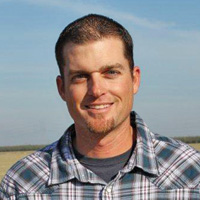Help Cows Breed Back

 Charles DeGroot
Charles DeGroot
Fresno, Calif.
DeGroot is a third-generation California dairy producer whose San Joaquin Valley operation milks 2,400 cows.
Herd health begins with nutrition at our dairy. We work very hard to make sure that the diet we want to feed the cow is actually what she is getting.
We do this by constantly testing feed ingredients as well as the total mixed ration (TMR). We use FeedWatch to manage our feeding program. We work closely with our nutritionist to make sure we are on track and make adjustments as needed. If nutrition is off, then cows are going to be off.
Our vaccination program is another important step to keeping our herd healthy. This starts from the moment our calves set foot on the calf ranch, where they are raised for four months. The ranch follows a strict vaccine protocol covering IBR, BVD, BRD, BRSV, salmonella, pinkeye and more. When calves return to our farm, we continue that vaccination program to be sure they stay on track for good health and good breeding.
We have worked with our vet as well as our pharmaceutical company to develop a vaccination program that fits our herd and management style. It’s important to us that we are consistent about implementing our program. This vaccination program continues throughout the life of our animals.
Transition cow management is also one of the key areas we focus on. We have 24-hour watch in our maternity/close-up cow area. We know when cows start calving, how long they’ve been calving and when we need to assist. Calves are fed colostrum within 30 minutes of birth. Older fresh cows are given IV calcium or calcium paste orally as a preventative for milk fever. Any animal that needs assistance is evaluated to see if she will need additional treatment to help in the aid or prevention of infection.
From that point, we monitor temperatures for seven days and check for retained placentas and infections. We evaluate each cow on an individual basis and treat according to the cow’s needs.
We have vet check once a week and check all fresh cows at around 40 days in milk. Cows are enrolled in an OvSynch program to have them inseminated by 90 days in milk. We preg-check at 38 to 44 days since bred. All cows are given GnRH seven days prior to preg check, and cows called open at preg check are given Lutalyse to re-synch them.
We use a 60-day voluntary waiting period. Our in-house breeders are responsible for checking fresh cow temps, heat detection, Ov shots and all artificial insemination. We have been using Select Sires semen for over 30 years to help us accomplish our genetic goals.
Herd health and reproduction are a top priority for us. All of the programs and protocols we use are managed through the use of RFID and handheld computers. Consistency is the name of the game, and having the right tools to manage our herd is how we get the job done.
| DeGroot's Most Recent Prices | |
| Milk (3.65% bf, 3.35% prt) | $16.37/cwt. (over base), $18.07/cwt. (quota) |
| Cull cows | $66/cwt. |
| Springing heifers | $1,550/head |
| Alfalfa hay (milk cow) | $300-$325/ton |
| Corn (rolled) | $284/ton |
| Cottonseed | $385/ton |
| Bull calves | $130/head |







